18 incredible stats you might have missed from the 2018 World Cup
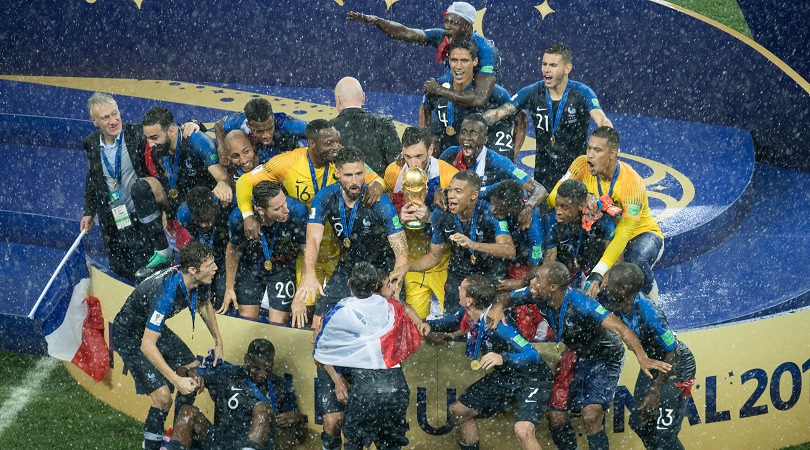
World Cup stats
After 64 matches and 169 goals, the 2018 World Cup is over. France's 4-2 victory over Croatia in Sunday's final saw Les Bleus win the competition for the second time in their history, 20 years on from their maiden triumph on home soil. In this slideshow, we pick out 18 incredible statistics which help explain the tournament in Russia.
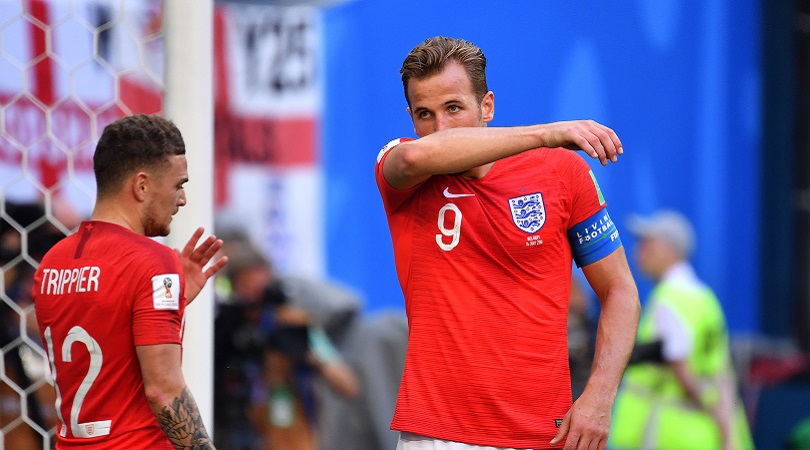
Uninventive England
0.6 shots on target from open play per hour is all England averaged over their first six outings – a lower return than any other side except Iran. Four of the six they produced over those 10 hours of action came against minnows Tunisia and Panama, including the goal Harry Kane fortuitously deflected in with his heel.
Gareth Southgate’s side relied heavily upon set-pieces, and a lack of creativity from open play was ultimately their undoing. Had they not been as successful from dead-ball situations, it’s unlikely that the Three Lions would have reached the last four.
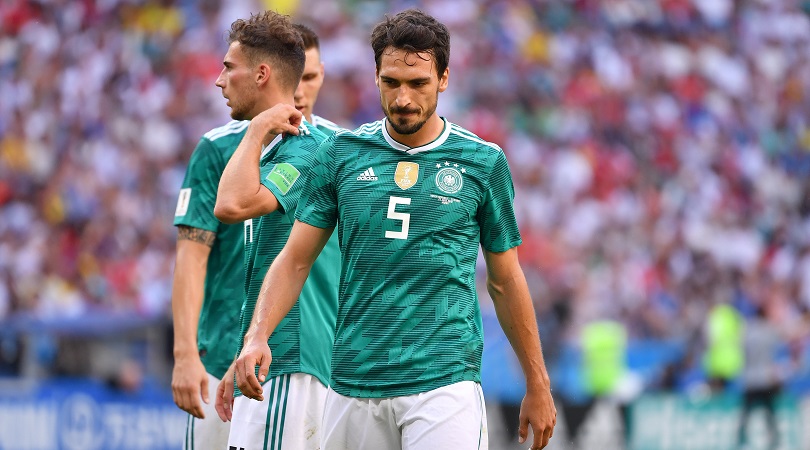
From heroes to zeros
3 successive defending champions have now been eliminated in the group stage after Germany emulated Italy in 2010 and Spain in 2014. Joachim Low’s side had odds as low as 1-25 on to qualify for the last 16, yet they finished bottom of Group F behind Sweden, Mexico and South Korea.
With France also suffering a first-round exit in Japan and South Korea 16 years ago, four of the last five holders have fallen at the first hurdle. Les Bleus will seek to avoid the curse in Qatar 2022, where they – like Germany this summer – will be among the favourites to triumph.
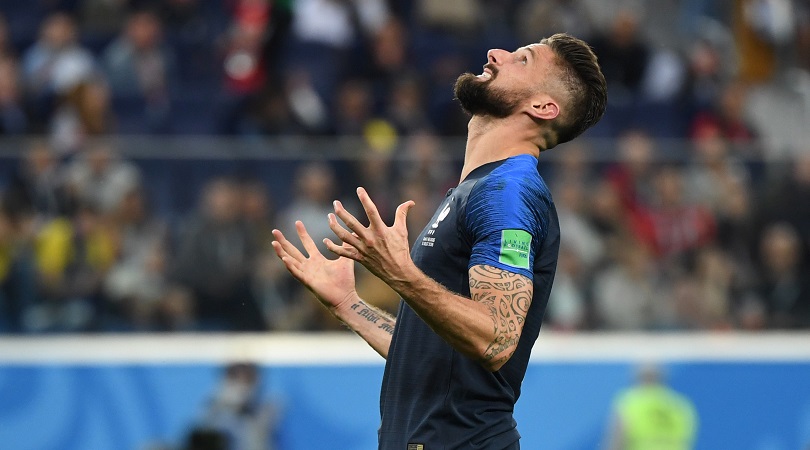
Frenchman’s famine
13 shots by Olivier Giroud over nine hours and one minute of playing time at Russia 2018 – and, astonishingly, none were on target. Giroud was one of several No.9s who surprisingly failed to find the target, including (but not limited to) Gonzalo Higuain, Gabriel Jesus, Robert Lewandowski and Timo Werner.
The only exceptions were goalscoring No.9s Radamel Falcao, Paolo Guerrero, Harry Kane, Andrej Kramaric, Romelu Lukaku, Aleksandar Mitrovic and Luis Suarez. The most prolific shirt number was 10, which accounted for 24 goals at the tournament.
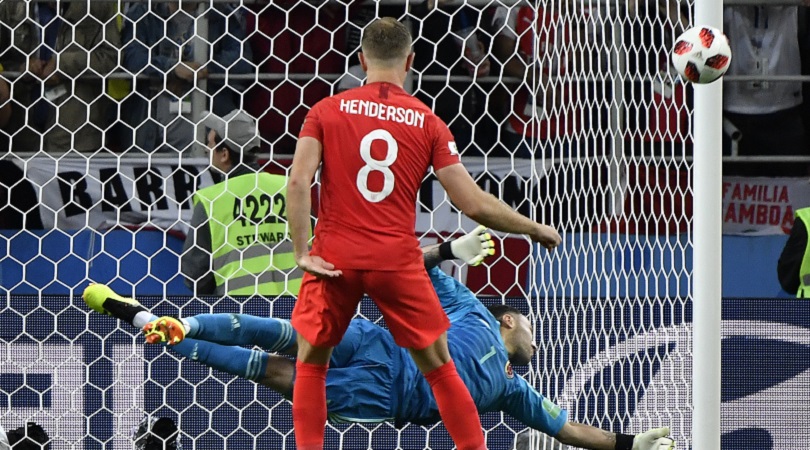
Four eights from 12
4 total World Cup penalty shoot-outs for England, and on each occasion their No.8 has missed his spot-kick. The latest was Jordan Henderson against Colombia, imitating Chris Waddle against West Germany in 1990, David Batty against Argentina in 1998 and Frank Lampard against Portugal in 2006.
Regardless, the Three Lions’ shoot-out success against Colombia in the round of 16 was their first ever at the World Cup. Eric Dier converted the decisive kick to send Gareth Southgate’s side through to the quarter-finals.
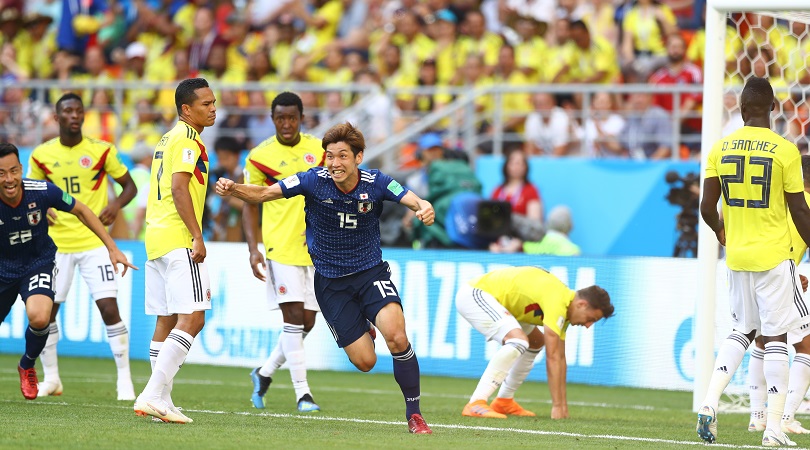
Continental curse cracked
19 matches: how many it took for an Asian Football Confederation side to record a first victory over South American opposition at the World Cup. Japan’s 2-1 upset of Colombia followed 15 defeats and three draws, registered between South Korea (five attempts), Japan (four), Iran (two), North Korea (two), Israel, Iraq, United Arab Emirates, China and Australia.
The Samurai Blue came close to creating more history as they sought a quarter-final berth for the first time. Leading 2-0 against Belgium in the round of 16, they suffered a heartbreaking defeat when Nacer Chadli completed the Red Devils’ comeback in the last minute.
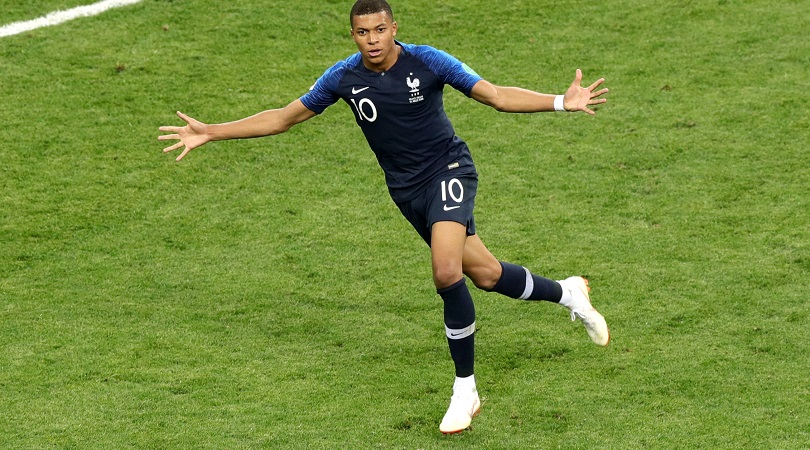
Baby Bleu
19 – the age at which Kylian Mbappe became the first teenager since Pele in 1958 to score multiple goals in a World Cup game. Mbappe then became just the third teenager to play in the final, after Pele (17 in 1958) and Giuseppe Bergomi (18 in 1982) – and the second to score in it after the Brazilian legend.
Unsurprisingly, the Paris Saint-Germain forward won the Young Player of the Tournament award, as his four goals helped France win the trophy on foreign soil for the first time in their history.
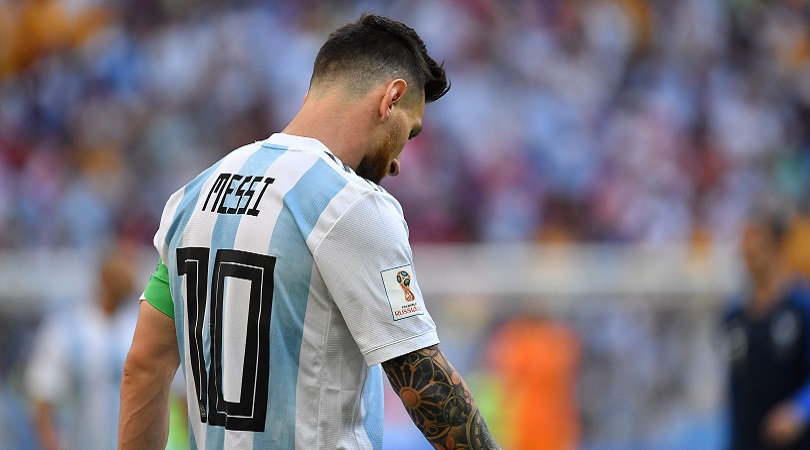
Knockout drought for Messi and Ronaldo
0 goals in 21 hours and 10 minutes: the preposterous combined record of Lionel Messi (eight appearances, no goals) and Cristiano Ronaldo (six games, no goals) in knockout games at the World Cup. In 2018, the Portuguese No.7 drew a blank against Uruguay, while Argentina’s No.10 did the same against France.
Both men had their moments in the group phase, Ronaldo netting a superb hat-trick against Spain and Messi opening the scoring in Argentina’s crunch clash with Nigeria. Still, there’s now a good chance that the pair will end their careers having never found the net in a World Cup knockout tie.
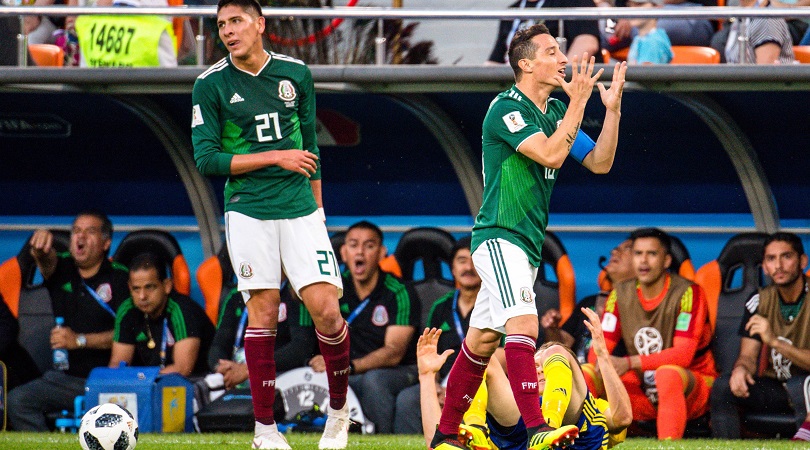
The hurdle of death
7 World Cups in a row have ended with Mexico bowing out at the round of 16. El Tri got their campaign off to the perfect start with a shock 1-0 victory over holders Germany, but a 3-0 loss to Sweden in their final first-round game saw them finish second in Group G and thus paired with Brazil in the first knockout round.
In the 2-0 defeat by the Selecao, Rafa Marquez, at 39 days and 139 days, became the oldest player to start a knockout game since England’s Stanley Matthews, who was six days older, against Uruguay in 1954. Earlier in Russia, Marquez had become the third man to play in five World Cups after Antonio Carbajal and Lothar Matthaus.
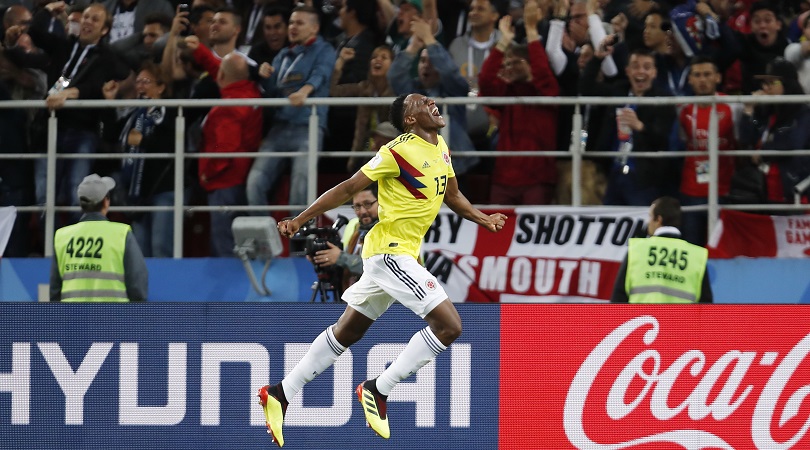
Jumping Yerry
3 consecutive World Cup goals for Yerry Mina, who became the first defender to achieve this. Each of the 6ft 3in Colombian centre-back's headers came from right-wing crosses, including a dramatic leveller against England in second-half stoppage time.
The towering defender proved a huge threat in the opposition penalty area, although his World Cup also featured some suspect defending at times. Still only 23, Mina – contracted to Barcelona but heavily linked with a move to the Premier League – has plenty of time to improve.
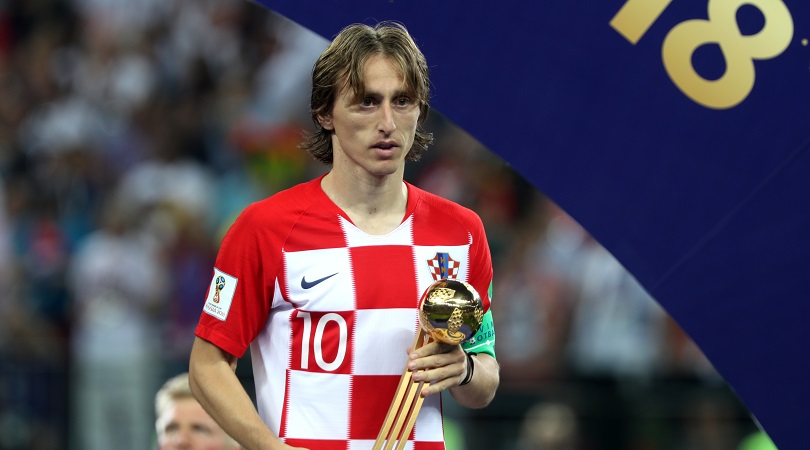
Golden bridesmaids
6 consecutive Golden Ball winners have failed to win that World Cup: Brazil’s Ronaldo in 1998, Germany’s Oliver Kahn in 2002, France’s Zinedine Zidane in 2006, Uruguay’s Diego Forlan in 2010, Argentina’s Lionel Messi in 2014 and Croatia’s Luka Modric in 2018.
Five of them were on the losing side in the final, with Forlan the exception as Uruguay lost in the semi-finals. The last man to win both the Golden Ball and the World Cup was Romario, who fought off strong competition from Roberto Baggio to claim the individual gong after Brazil’s fourth triumph in 1994.
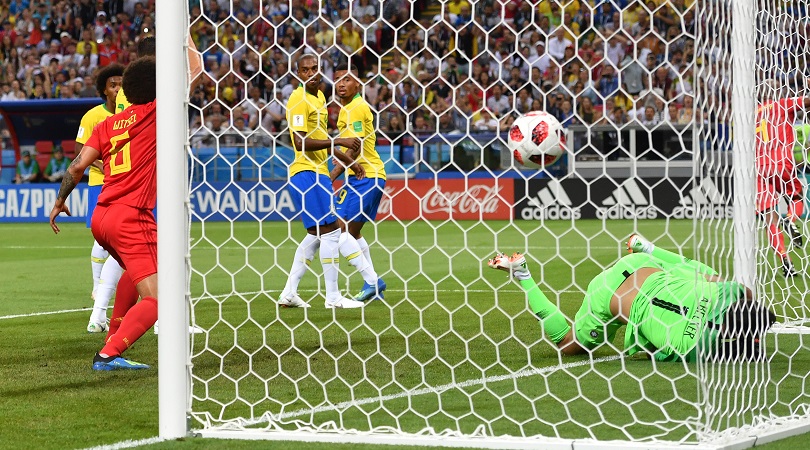
Own goal frenzy
12 own goals were scored at Russia 2018, easily topping the previous high at a tournament: eight in 1998. Mario Mandzukic’s header was the maiden own goal in a World Cup final, but he finished it having become only the second man to net for both teams in a World Cup game (after the Netherlands’ Ernie Brandts against Italy in 1978).
The other men to put the ball in their own net were Aziz Behich (Australia), Fernandinho (Brazil), Ahmed Fathy (Egypt), Edson Alvarez (Mexico), Aziz Bouhaddouz (Morocco), Oghenekaro Etebo (Nigeria), Thiago Cionek (Poland), Denis Cheryshev (Russia), Sergei Ignashevich (Russia), Yassine Meriah (Tunisia) and Yann Sommer (Switzerland).
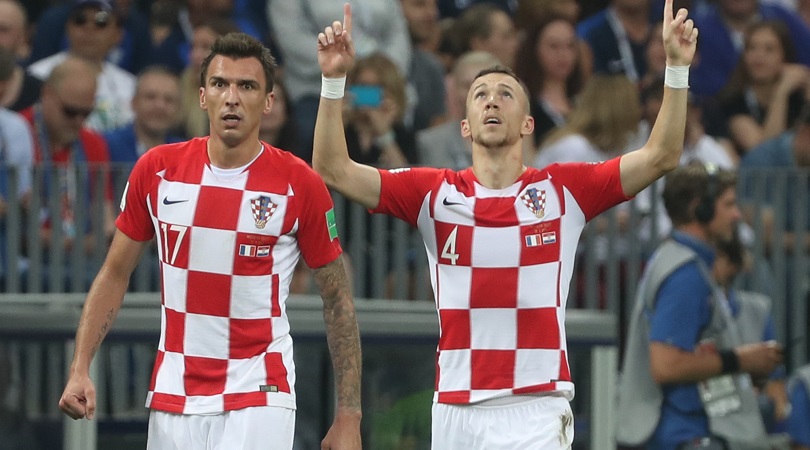
Ever-present employers
10 successive World Cup finals have featured an Inter and a Bayern Munich player. Nerazzurri pair Marcelo Brozovic and Ivan Perisic started for Croatia, while Bayern’s Corentin Tolisso came on for France in Moscow to extend the trend.
Manchester United man Paul Pogba, meanwhile, became the first Premier League-based player to score in a World Cup final since fellow Frenchman Emmanuel Petit, then of Arsenal, in 1998.
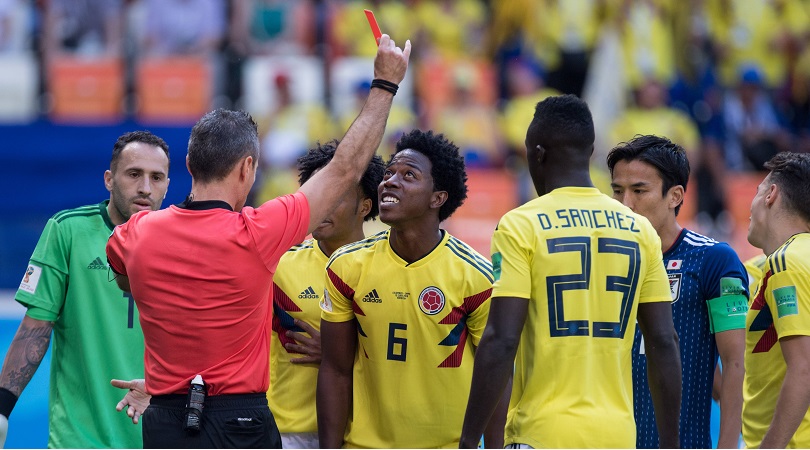
Best behaviour
4 red cards were shown at Russia 2018. That’s the same number Valentin Ivanov handed out in one match, the ‘Massacre of Nuremberg’ between Portugal and the Netherlands in 2006.
At 0.06 per game, it's the lowest red card average since Mexico 1970 (zero dismissals), with the highest of 0.44 – almost one every two games – set at Germany 2006. Colombia midfielder Carlos Sanchez was shown the second-quickest red card in World Cup history against Japan, with the ex-Aston Villa man given his marching orders after just 176 seconds.
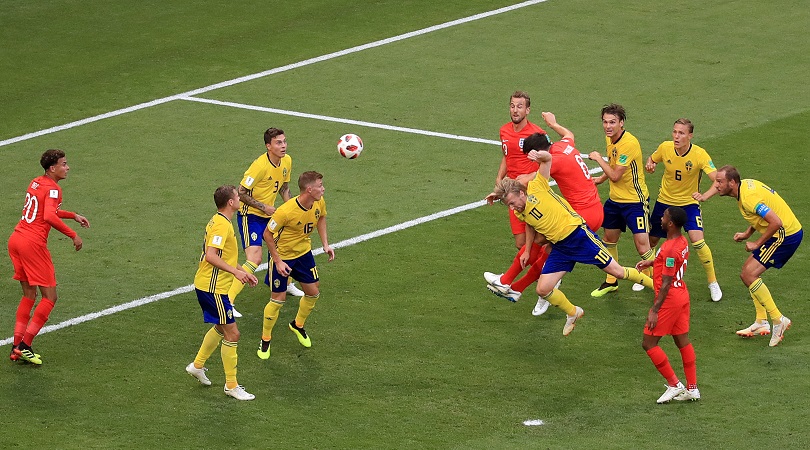
Dead balls are more alive than ever
43% of the 169 goals scored at Russia 2018 came from set-pieces – the highest ratio in the last 60 years. England netted nine goals from dead-ball situations – the most by a team at a World Cup since Portugal in 1966 – with Gareth Southgate’s side producing several innovative routines from corners and free-kicks.
"Set-pieces have proven to be an important tool at this World Cup," said Andy Roxburgh, a member of the FIFA Technical Study Group. “That shows efficiency, as well as speed of thought and action."
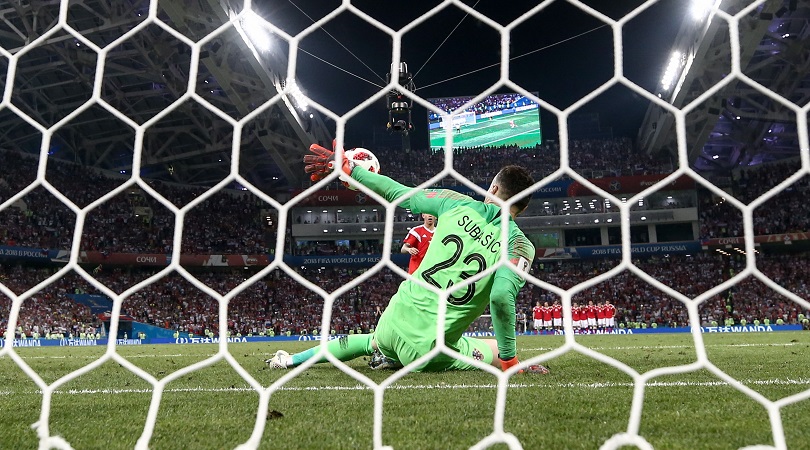
Suba-saves
4 saves in World Cup penalty shootouts by Danijel Subasic, matching the record of West Germany’s Harald Schumacher and Argentina’s Sergio Goycochea. The 33-year-old’s exploits helped Croatia become the second side to win two shootouts in the same World Cup – they eliminated Denmark and Russia – after Argentina in 1990.
Against England in the semi-finals, Croatia became only the second side in World Cup history to have three straight games go to extra time after England at Italia ’90.
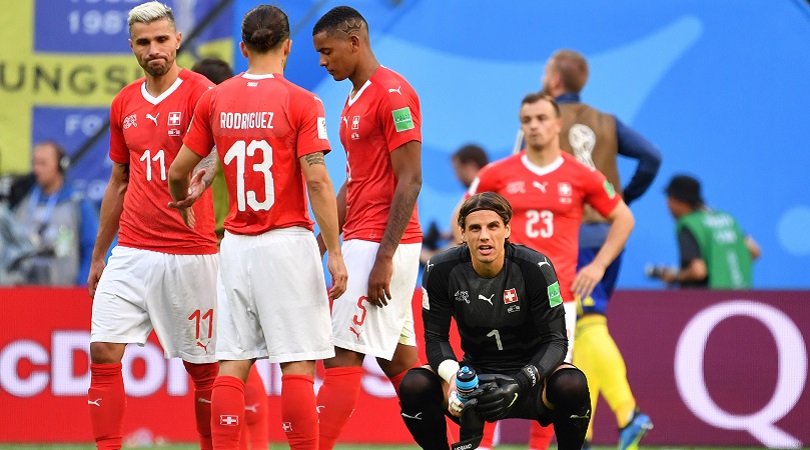
Clock keeps ticking on Alpine drought
64 years have passed since Switzerland last scored in a knockout game at the World Cup, after they failed to end their drought in a 1-0 loss to Sweden following a second-place finish in Group E.
Remarkably, the last time the Swiss did score beyond the group stage, they netted five times in 45 minutes of action but still lost 7-5 to Austria in 1954. They have now suffered elimination in six successive knockout ties in the tournament.
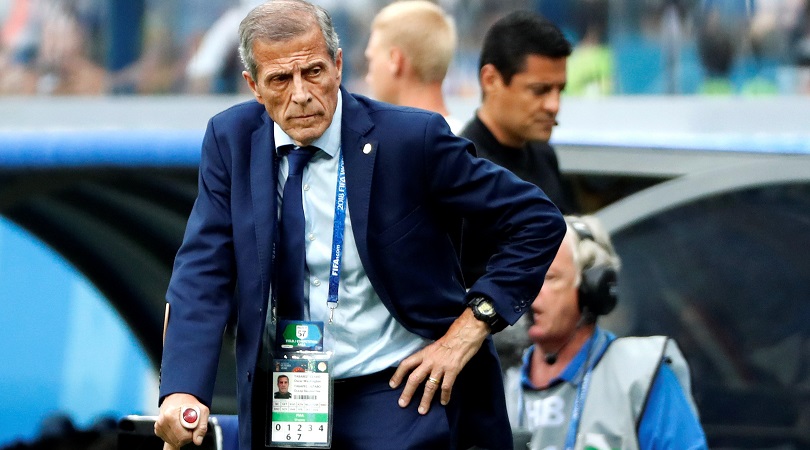
Groundbreaking granddads
135 years and three months was the combined age of Uruguay manager Oscar Tabarez and Portugal boss Fernando Santos when they met in the last 16 – the oldest combined age for two coaches in a World Cup match.
Tabarez helped break the record he'd set at Brazil 2014, when he and his England counterpart Roy Hodgson had a cumulative age of 134 years and two months. The 71-year-old has been in charge of La Celeste since 2006, while the 63-year-old Santos has almost been in charge of his native country for four years.
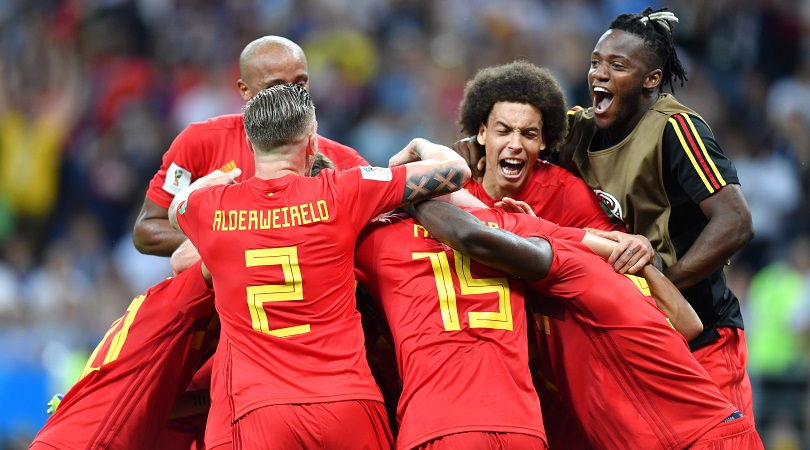
Belgium's breakneck speed
10 seconds is all that passed between Thibaut Courtois rolling the ball out at one end and Nacer Chadli snatching Belgium an injury-time winner at the other against Japan in the last 16.
The move involved Kevin De Bruyne, Thomas Meunier and Romelu Lukaku, who cannily dummied the ball for Chadli to score. The goal made Belgium the first side to recover from a two-goal deficit and win a World Cup knockout match in normal time since a Eusebio-inspired Portugal against North Korea 52 years earlier.

Greg Lea is a freelance football journalist who's filled in wherever FourFourTwo needs him since 2014. He became a Crystal Palace fan after watching a 1-0 loss to Port Vale in 1998, and once got on the scoresheet in a primary school game against Wilfried Zaha's Whitehorse Manor (an own goal in an 8-0 defeat).
